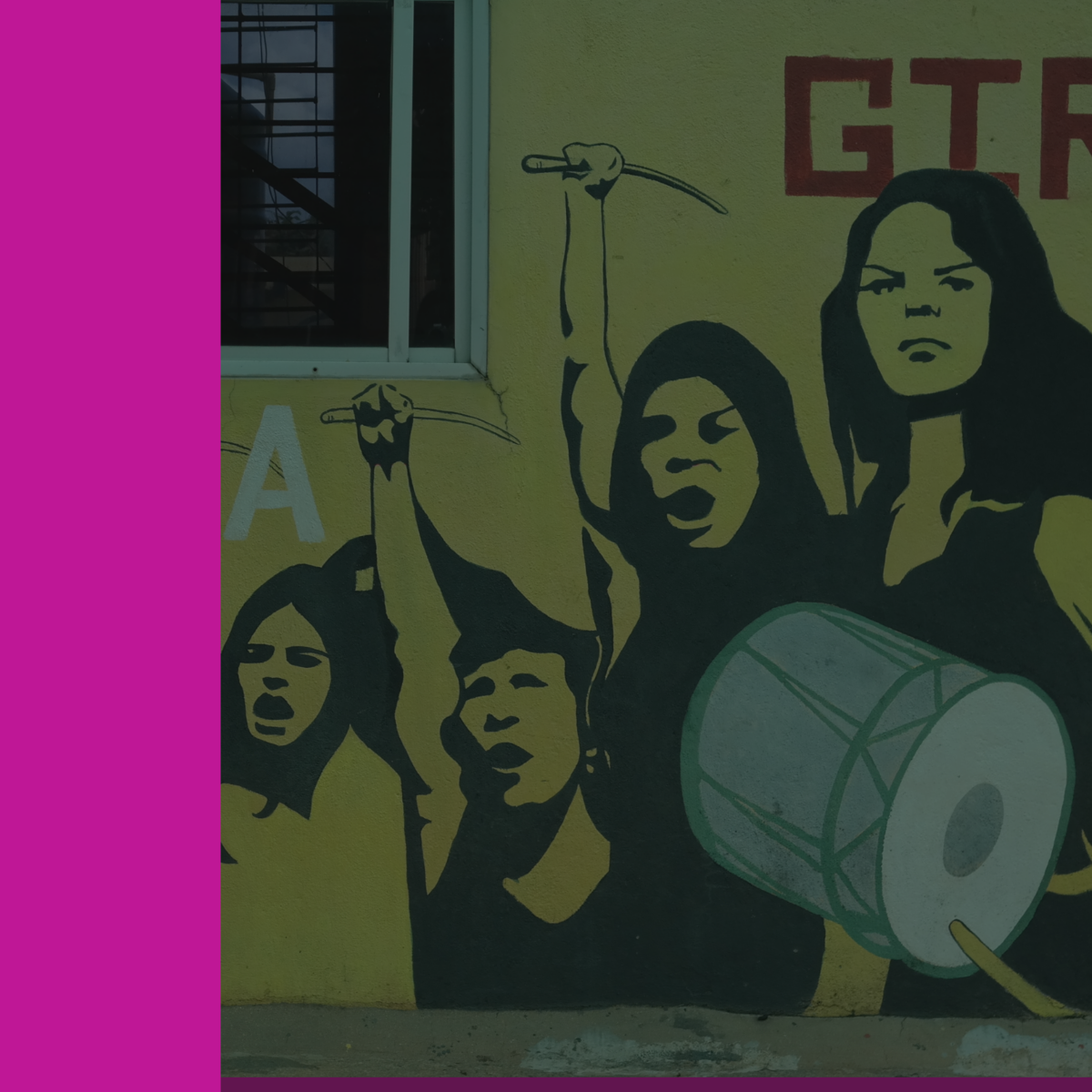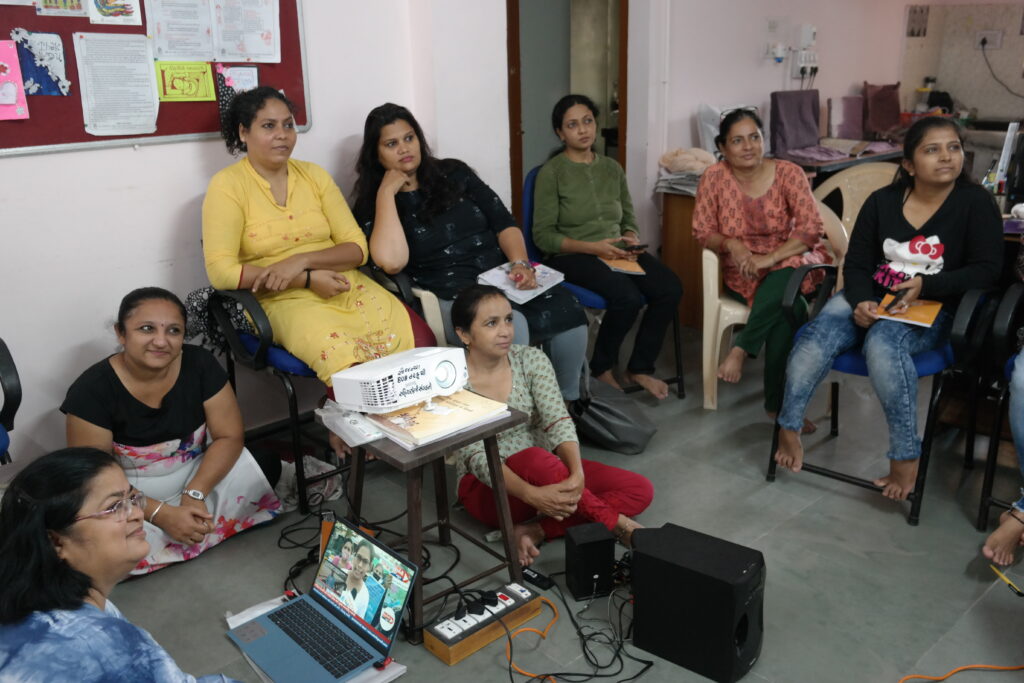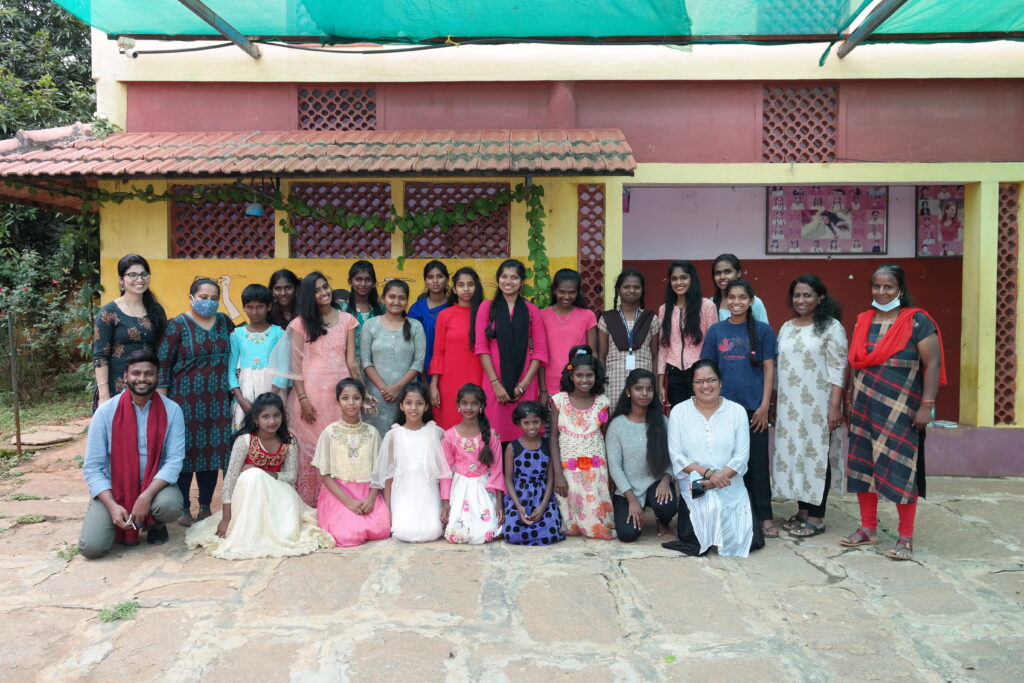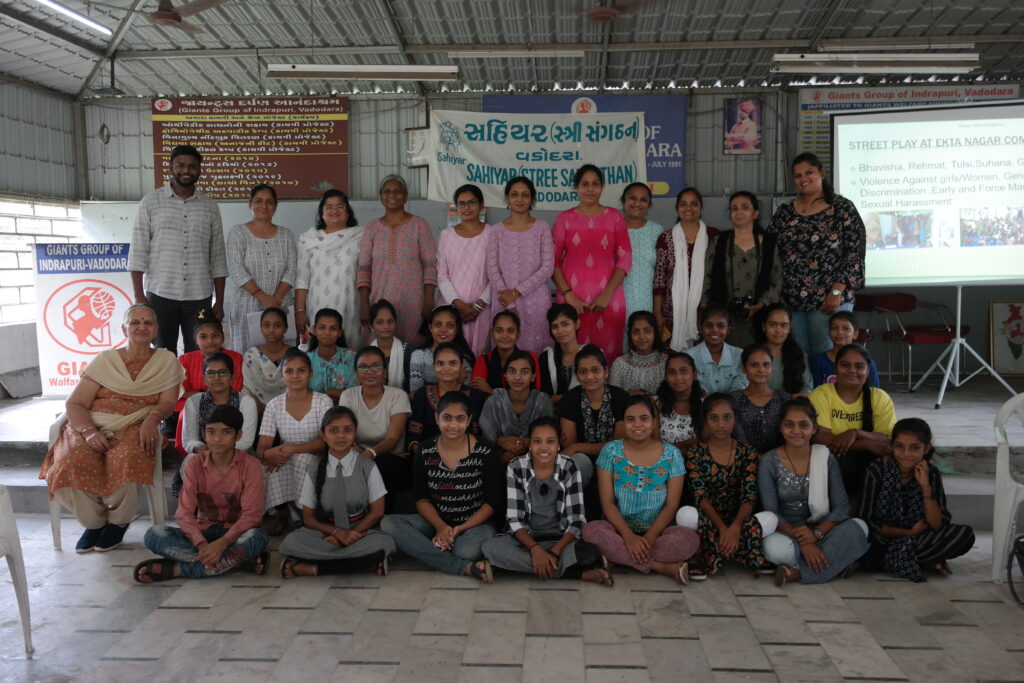
Blog
We witnessed multiple levels of impact which are seldom documented and reported. This was possible because we wanted to listen to what individuals were saying rather than imposing questions and indicators.
From the Field: July-August 2022
By Sunil Gangavane, Program Officer
September 2, 2022
Reading Time: 5 minutes‘Leading from a place of compassion’ may seem like an ambiguous concept, but it surprises us when we see it in action. Perhaps its simplicity surprises us, but if we look around, what seems really profound is really simple. I am sharing this because my recent field visits to Shadhika’s partner organizations were also full of pleasant surprises and learning opportunities.
In July and August, My and I travelled to meet with our NGO partners across India. It felt great to meet them in person, visit their offices and communities, taste the food, and get a sense of the culture. This was our first site visit since the pandemic and they provided us with texture and stories about how their organizations, their communities, and issues of girls’ education have been affected.

The highlight of my visit was the strong work done on the ground. The programs we visited had their distinct style and design, but the one thing they all had in common was the passion for the work they did. Their empathy and concern were evident in every interaction. It was fascinating to see how feminist values of respect, solidarity, co-creation, and participation were being incorporated into all aspects of the work. Across organizations, we saw how and why trust and relationship building are important elements of social transformation.
Many generations of feminist leaders have contributed to social transformation and this work continues. It was heartwarming to see senior board members, staff, and young women sitting together to plan upcoming training programs. During the visit, we also saw a group of mothers and daughters discussing why they do not receive enough rations and what they can do about it. Many Scholars visit the younger girls regularly to share their experiences and offer career and life advice. This intergenerational work is solid and reassuring, perhaps because they recognize their interconnections in the larger movement for gender justice.

Another intriguing aspect was the variety of challenges faced by the girls. Survival, safety, and education are the most important needs for girls at Baale Mane while girls at Milaan Foundation in Uttar Pradesh face poverty, discrimination, and a general lack of resources, and girls at Vacha in Maharashtra are fighting against stigma and gender norms. The issues differ in different communities, as do the interventions by the partner organizations. These organizations address the issues by running shelter homes, operating community support centres, and offering scholarships, and rights education campaigns.
Each program is developed through dialogue with community members and is thus grounded in specific social-cultural contexts. Garba (Gujrat’s traditional folk dance), for example, has been reclaimed by the girls and women at Sahiyar in Gujarat. They have rewritten Garba songs, gathered girls and women of all ages, and use this opportunity to celebrate girls’ and women’s participation in public spaces. Isn’t it a clever example of negotiation between cultural norms and gender equality?

There are many lessons to be learned. And while we appreciate and learn from this work, reflecting on our work is equally important. The question of how we can support, grow, and amplify this organic work is critical at this time.
For Shadhika, the answer to this question begins with being open: to be willing to listen, see, and be led by our partner organizations. Many organizations have developed and evolved their programs through careful planning and practice, and they have the wisdom and skills to affect change. We must use this experience to shape the way we work, and also constantly re-evaluate how we understand the impact and how we measure it.
We witnessed the type of impact that is seldom documented and reported. This was possible because we wanted to listen to what individuals were saying rather than imposing questions and indicators. The beauty of change is that it doesn’t take one shape and cannot be captured in one form.
Small and grassroots organizations require longer and more flexible funding to reflect this impact. This will allow them to make better choices and invest in innovation and sustain their individuals and organizations. Organizations require mental space to think beyond constant fundraising and proposal writing activities.
Traditional ways of understanding impact need to be replaced with affirming, supportive, and forward-thinking approaches. Shadhika believes that doing so will not only improve the relevance of our approaches but will also help us redistribute power.
You can read this post in Hindi here.
Read more